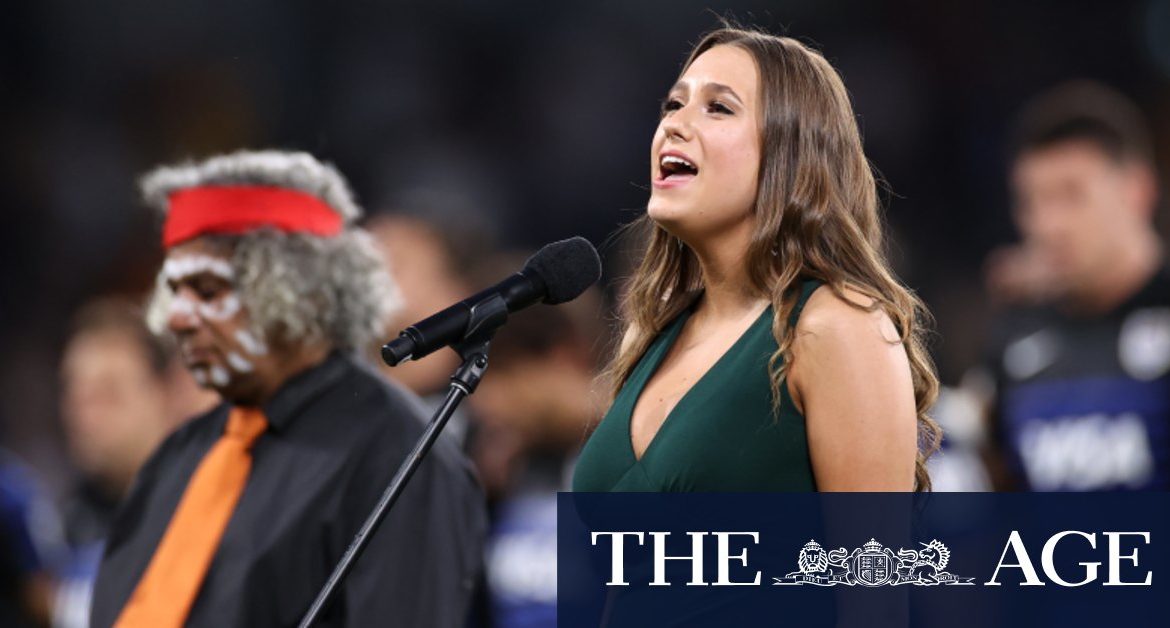Ms Berejiklian said at the time that to continue singing Australians were “young and free” ignored the tens of thousands of years of First Nations culture and heritage. She was backed in November by a range of Indigenous and political leaders, including Labor’s Anthony Albanese, Indigenous Australians Minister Ken Wyatt and One Nation leader Pauline Hanson.
Loading
In early December, 16-year-old student and Wiradjuri woman Olivia Fox sung a verse of the national anthem in the Dharug language ahead of the Wallabies playing Argentina, eliciting a wave of positive feedback. Mr Morrison has recounted on several occasions how children in the Sutherland Shire, including his own, learn the anthem in Dharawal language.
However, the Prime Minister does not want the change to the wording to be seen purely through the prism of Indigenous recognition, which is behind his recommendation to Governor-General David Hurley it take effect from January 1 rather than Australia Day.
“In recognition of the extraordinary united effort of Australians over the past year, the time is now right to make the change,” Mr Morrison says. “During a time when communities around the world are splintering and identity politics concentrates on our differences, this change affirms our shared national story and shared destiny.”
Loading
Scottish-born composer Peter Dodds McCormick wrote Advance Australia Fair in 1878. Mr Morrison said that at that time, the phrase “young and free” “undoubtedly captured the energetic spirit of liberty that drove Australia towards nationhood”. It was adopted as the national anthem under Gough Whitlam in 1974 but dumped two years later when Malcolm Fraser reinstated God Save The Queen. Advance Australia Fair was again adopted as the anthem under Bob Hawke in 1984.
It is expected the first official rendition of the anthem with the new words will be sung at the opening of the January 7 test match.







